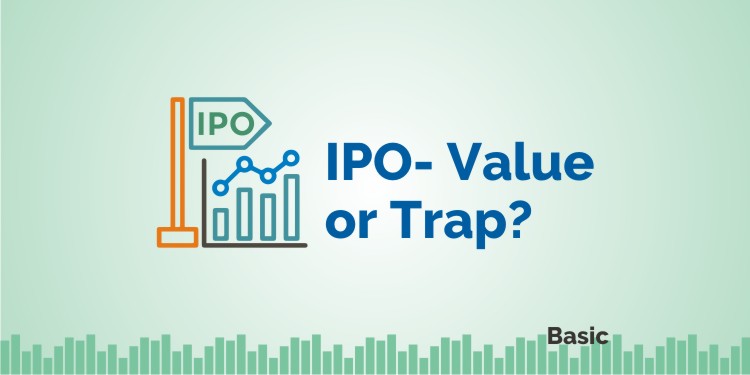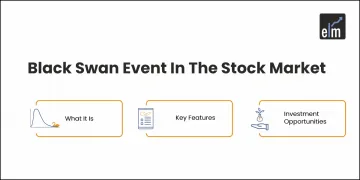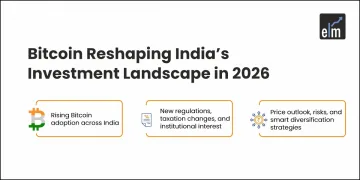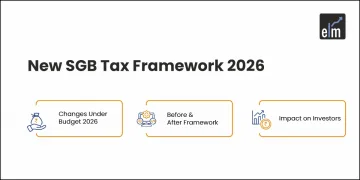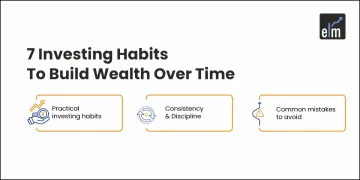Initial Public Offering (IPOs) is again the hottest sector in the Indian financial market since too much money has been made in the last few months.
In 2017, almost 38 IPOs were issued raising an amount worth Rs 75,475.37 crore while in 2018 till date, 14 IPOs have already been issued successfully thus raising an amount worth Rs 19,274.90 crore.
So you can clearly see that the IPO market is gradually picking up momentum.
I was having a chat with my friend who told me that according to him, the initial public offering is a better way to make quick money.
His opinion was based on the recent experience which he made by investing in the two IPOs which include Bharat Dynamics and Bandhan Bank which gave a good return on the first day of listing.
I don’t know whether it is actually a good way to make quick bucks or not, so let’s dig deeper to analyse the IPO market whether it is actually a value or a trap.
This made me remember a nice quote by legendary investor
Warren Buffett said, “Be fearful when others are greedy and greedy when others are fearful”
What is Initial Public Offering?
Initial Public Offering (IPO) is a public offering where the company sells the share to the public for the first time.
Also Read: Understanding Initial Public Offer (IPO)
It is mostly done by the companies to raise capital for expansion, to exit from the investments made by angel investors, etc.
If we look into history, Initial public offering has always underperformed and surer way of losing money in the long run as compared to secondary market which has been proved from the data taken from several countries spanning over decades.
So many people have lost their shirts in the IPO bubble of 1992 and 1994 and I now see that it is the same story all over again.
Benjamin Disraeli, a famous British politician said, “ What we learn from history is that we do not learn from history”.
Moreover, history also tells us that it is better to be a seller in this market than to be a buyer because in the long run more than 100% of the total wealth created in the IPO market accrues to the seller and the buyers lose money.
Warren Buffett said, “It’s almost a mathematical impossibility to imagine that, out of the thousands of things for sale on a given day, the most attractively priced is the one being sold by a knowledgeable seller (company insiders) to a less-knowledgeable buyer (investors)”.
Few characteristics show that an initial public offering is more profitable to be a seller than to be a buyer.
Firstly, the sellers are the insiders who know more about the company than the buyers,
Secondly, the sellers decide the timing of the sale and so they choose to sell when they get a high price for their shares
Lastly, since the quantity of shares to be offered is not fixed so it can be played by merchant bankers to attain the optimum price from the seller’s viewpoint.
Benjamin Graham, father of Value Investing said,
“Somewhere in the middle of a bull market, the first new issues make their appearance. These are priced not unattractively and some large profits are made by the buyers of the early issues.
As the market continues to rise, this brand of financing goes more frequent; the quality of the companies steadily poorer; the prices asked verge on the exorbitant.
One fairly dependable sign of the approaching end of a bull swing is the fact that new issues of small and nondescript companies are offered at prices somewhat higher than the current level for many mediums sized companies with a long market history”
Also Read: 5 Mantras of Value Investing
However, it cannot be ignored that in the past few life-changing IPOs have also hit the market which includes Sun Pharma, TCS, HDFC Bank, etc and people do have made a lot of money but it is very rare to find shares of the company offered at bargain prices.
Over the years, I have hardly found any initial public offering which was launched keeping in mind the interest of the shareholders.
In fact, in most cases, it was launched in the form of legalized looting by promoters and their investment bankers.
Benjamin Graham said, “Intelligent investors should conclude that IPO stands for Initial public offering. More accurately it is also a shorthand for – It’s Probably Overpriced, or Imaginary Profits Only, or even Insiders Private Opportunity”.
History says that most of the companies come out in IPOs during the bull markets when there is plenty of money with the people and they are able to price more for the shares.
The small investors generally get trapped in the words of their brokers, are lured into the hype, and often end up a large part of their savings betting on listing gains.
The reason why I believe that small investors should avoid initial public offering is that it is generally expensive and it has always underperformed over the long run.
